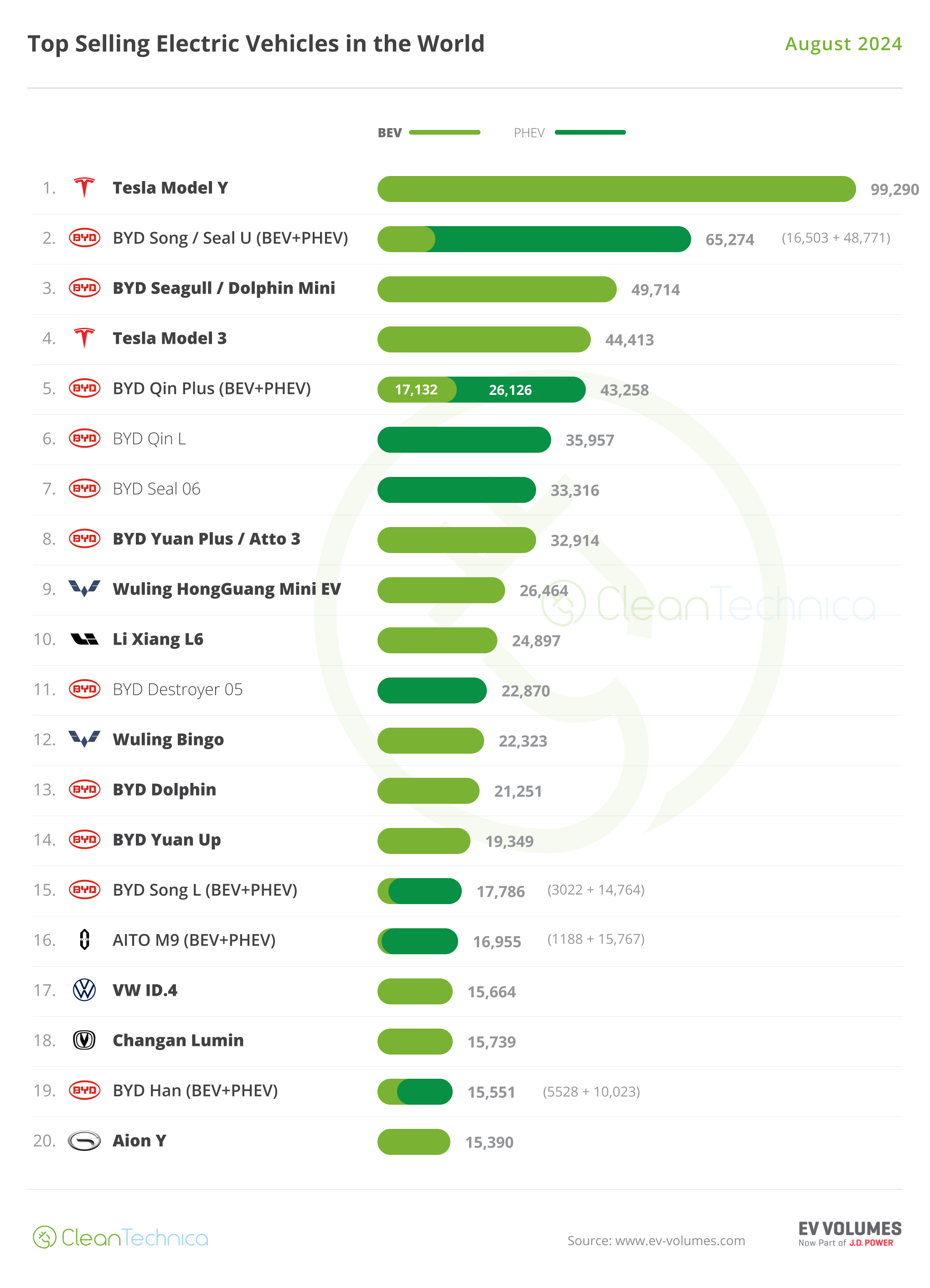Sign up for daily news updates from CleanTechnica on email. Or follow us on Google News!
Two DOE-funded tech-to-market projects, led by Reshma Singh, a Harvard-trained architect now based out of Lawrence Berkeley National Laboratory, help female and diverse entrepreneurs and innovators dramatically reduce the time it takes to get scientifically-vetted climate tech to market. These projects are called IMPEL and Cradle to Commerce.
While leading these projects, Reshma has identified a trend: Women are developing some of the most exciting and promising building decarbonization technologies on the horizon. In some cases, it can take decades before a climate technology reaches commercialization. Through IMPEL and Cradle to Commerce (C2C), Reshma and her team are working on accelerating the process.
We at CleanTechnica were delighted when Reshma and her team reached out to us to share updates about IMPEL and Cradle to Commerce.
 Chip in a few dollars a month to help support independent cleantech coverage that helps to accelerate the cleantech revolution!
Chip in a few dollars a month to help support independent cleantech coverage that helps to accelerate the cleantech revolution!
What’s being done differently at IMPEL and Cradle to Commerce to help diverse entrepreneurs and innovators to reduce time to get scientifically-vetted climate tech to market?
As a woman of color focused on addressing the climate crisis, I am proud to say every aspect of IMPEL and C2C helps women and diverse entrepreneurs succeed in climate tech.
First, there is our leadership. Women of color lead the IMPEL and C2C programs, and over half of the mentors, advisers, and experts involved are women and people of color. Our mentors have firsthand experience with the unique difficulties women and people of color face in securing funding and even just everyday operations for their climate tech projects.
I’ve experienced this throughout my career. Years ago I had an edutech startup. In pitch meetings, the audience would only address the hard technical questions to my male partner, even though this was my expertise and his focus was in other areas of the business. I still experience discrimination to this day. Last week, while stepping out of my hotel room to give a speech at a high-profile conference, the gentleman staying next to me assumed I was on the housekeeping staff and said his room was ready for me to clean!
In the US energy sector, women only hold 26% of the jobs, (even lower in management jobs), and they earn 20% less than their male counterparts. We need diverse perspectives and talent in order to achieve innovative solutions for the global transition to clean energy. I’m committed to helping other women and people of color participate in and lead this historic transition.
Next, it’s our application process. We have intentionally recruited women entrepreneurs, people of color, and people from diverse regions of the country – including 36 states so far – to our IMPEL and C2C programs.
Lastly, it’s our programming itself. We provide our innovators with the scientific expertise, business coaching, and funding connections they need to commercialize their projects faster than if they hadn’t received this support. According to Pitchbook data, women-founded startups received 2% or less of venture capital (VC) funding in the United States in 2023. We’re helping our women entrepreneurs overcome this challenge.
For example, C2C provides diverse innovators and entrepreneurs with exclusive access to top national lab IP. The innovators are matched with top scientists, business experts and investors who can help them take the IP to market. The goal: Accelerate equitable climate-tech entrepreneurship and commercialize scientifically-vetted climate-tech solutions from national labs in order to achieve swift reductions in climate emissions.
Why are women particularly so in tune with the IMPEL and Cradle to Commerce initiatives?
Our women entrepreneurs are particularly in tune with our focus on climate equity, because they’ve either experienced climate injustice themselves or they understand that women are disproportionately impacted by climate change. Kristeen Reynolds, CEO of GROWTH Development, lost her family home to Hurricane Harvey. GROWTH Development is developing hurricane-resistant homes, so that other families don’t have to experience such devastating loss.
What appeals to venture capital can support climate tech funding for diverse entrepreneurs?
We need more venture capital firms that share IMPEL’s and C2C’s values of supporting women and diverse entrepreneurs. According to the World Economic Forum, gender bias and a scarcity of female investors are thought to hamper VC investment in female-owned businesses that could be overcome by collaborating with women investors, and providing mutual exposure. Additionally, we need these venture capital firms to partner with programs like ours in order to maximize impact. Our partnership with Joe Garcia of Rethink Capital, an investment firm focused on supporting diverse entrepreneurs, is a great start.
It is also important to note supporting women and diverse entrepreneurs is not just a feel-good endeavor. There is a strong business case. Benefits include: Stronger decision-making and innovation, stronger company brands, and a stronger ability to attract and retain top talent – all of which will benefit the company’s bottomline.
Why is it important to focus on building/energy technologies to promote climate tech?
This is important for two reasons:
- Buildings are responsible for 40% of global greenhouse gas emissions.
- We need better, more sustainable buildings to keep communities safe during extreme weather events that are exacerbated by climate change. While the need to decarbonize the built environment is urgent, hard tech tends to need years to develop from concept to market.
Alexa Bednarz, CEO and founder of Eco-Shelter, is leading exciting work in this area. Eco-Shelter is developing ultra-low-carbon, cost-competitive roofing and building projects made from bamboo, which is a more sustainable alternative to traditional wood materials and cement.
Helene Cornell, co-founder of ARIS Hydronics, has developed a clean, high-performing HVAC and hot water system that produces no climate emissions and delivers significant energy savings compared to traditional HVAC and hot water systems.
What is the intersection between sustainable building technologies and environmental justice?
The most basic intersection has to do with construction materials, such as lumber. Deforestation is an issue. When we remove forests, we leave communities vulnerable to climate impacts such as severe storms, heavy rain, and flooding. PVC, which is used to make siding, pipes, flooring, and window treatments, is also a problem. PVC plants emit a toxic gas known as vinyl chloride. These facilities are highly concentrated in the disadvantaged Louisiana community known as “Cancer Alley” because of the high cancer rates among its residents. Jhana Porter, CEO of frakktal, is working on a solution which uses waste from agricultural processing to make alternatives to toxic PVC.
To what degree is women-led climate tech a niche industry – one that appeals to a market primarily composed of women?
I am excited to share that women entrepreneurs are particularly focused on IMPEL’s three main issue areas – regenerative circularity, sustainable prosperity, and integrating traditional wisdom with artificial intelligence (AI), and C2C’s four domain areas – buildings, grid modernization and energy storage, nuclear energy, and renewable energy. Women-led climate tech isn’t just about supporting women. It’s about supporting women in developing solutions that will benefit society as a whole.
For example: Regenerative circularity involves making products from clean, reusable materials. PHYTOSTONE, a woman-led firm founded by Emily Majewski, uses “cast carbon” – which combines biochar (pyrolyzed biomass) with natural clay, fibers, and binding minerals – as a clean, biodegradable alternative to ordinary portland cement. Cast carbon contains no petrochemicals, glues, asbestos, resins, or crystalline silica.
Sustainable prosperity is a form of economic development that benefits all people and the planet. Radiant Exchange, led by recent University of Pennsylvania graduate Rowan Bortz, uses radiant cooling to keep outdoor spaces cool during periods of extreme heat. Radiant surfaces absorb heat directly from your body, unlike air conditioners which rely on cooling the air around you. Radiant Exchange will enable us to spend more time outdoors in hot weather. We will spend less time cooling our buildings and save money on our energy bills, while addressing climate change.
Integrating traditional wisdom and AI is the practice of using AI to enhance systems that promote health and wellness. Aimee Bailey’s company Rock Rabbit uses AI technology to give consumers fast, easy, and reliable access to incentives for green home upgrades. These upgrades save consumers money, reduce indoor air pollution, and improve thermal comfort – all supporting our overall health and well-being.
Half of the C2C startups from the first cohort (four out of eight) that were selected to continue have a woman entrepreneur partner: Helene Cornell at Aris Hydronics, Vivian Tran at Galvanized Energy, Kanthi Latha Bhamidipati at AmDryve, and Pauliina Meskanen at Calectra.
What’s the long-term potential for women-led climate tech?
The potential is limitless, especially if we create an international community of women entrepreneurs working together to solve the climate crisis. This is the focus of another program I help lead: Climate Smart Women Energy Leader’s (CS-WEL) program. Through this program, I mentored an inspiring woman from Nigeria, Peace Nnabugwu, who grew up in a home with a traditional wood-burning cookstove. These stoves are common in low resource households throughout Nigeria that lack electricity. Unfortunately, they produce unsafe levels of pollution that harm families and they also contribute to climate change. Today, Peace is focused on phasing out these cookstoves and replacing them with clean cookstoves that are better for public health and the environment.
Another key element in this effort: ensuring girls are educated around the world. Educating girls and women can lead to 50 gigatons of avoided greenhouse gas emissions while addressing nine of the United Nations’ 17 Sustainable Development Goals.
Have a tip for CleanTechnica? Want to advertise? Want to suggest a guest for our CleanTech Talk podcast? Contact us here.
Latest CleanTechnica.TV Videos
CleanTechnica uses affiliate links. See our policy here.
CleanTechnica’s Comment Policy





